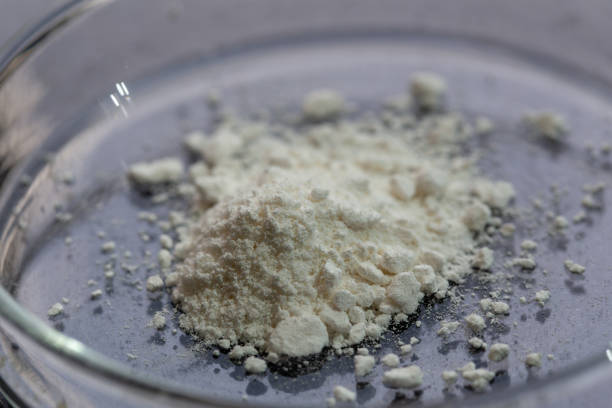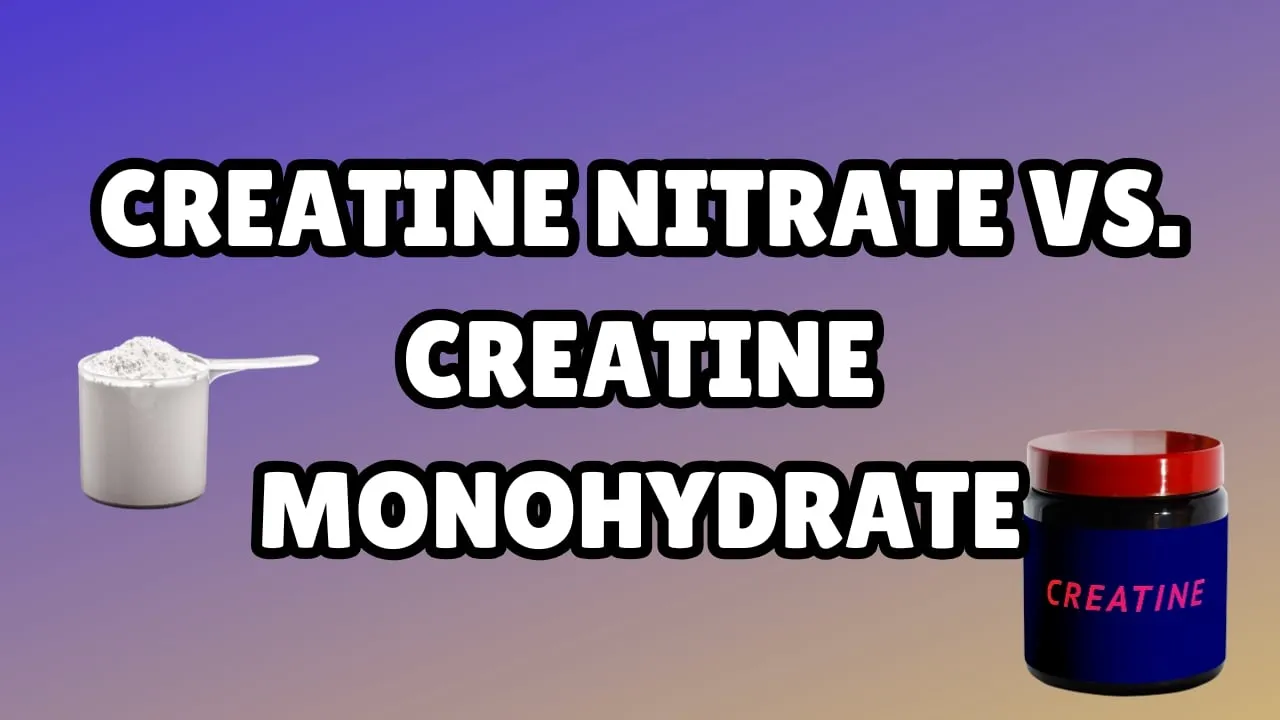Creatine Nitrate vs. Creatine Monohydrate: Key Differences Explained
Creatine Nitrate vs. Creatine Monohydrate: Understanding the Difference Between These Types of Creatine
Creatine is one of the most researched supplements in the world of sports nutrition. Among its various forms, creatine nitrate and creatine monohydrate stand out as popular options.
But which one is right for you?
In this guide, we’ll break down the differences, benefits, and science behind these two forms of creatine.
By the end of this article, you’ll have a clear understanding of which supplement suits your fitness goals.

What Is Creatine Nitrate?
Creatine nitrate is a unique form of creatine where a nitrate molecule is bonded to the creatine molecule.
This structure allows for increased solubility, meaning it dissolves more easily in water.
Benefits of Creatine Nitrate
- Enhanced Solubility: Creatine nitrate is one of the most water-soluble forms of creatine, making it easier to mix and consume.
- Improved Blood Flow: The nitrate component may enhance nitric oxide production, which improves blood flow and reduces oxygen depletion during high-intensity exercise. Learn more about creatine and blood flow here.
- Potential for Lower Doses: Due to its high solubility, users may require lower doses compared to creatine monohydrate.

What Is Creatine Monohydrate?
Creatine monohydrate is the most common form of creatine and has been extensively studied for decades.
It consists of a single creatine molecule combined with a water molecule.
Benefits of Creatine Monohydrate
- Proven Effectiveness: Backed by the International Society of Sports Nutrition, creatine monohydrate has demonstrated benefits for muscle growth, exercise performance, and ATP production.
- Affordable and Accessible: As the most common form of creatine, it is widely available and cost-effective.
- Safety and Efficacy: Creatine monohydrate is known for its acute and chronic safety. Learn about its long-term effects here.

Comparing Creatine Nitrate and Creatine Monohydrate
When comparing creatine nitrate and creatine monohydrate, several factors come into play:
Solubility
Creatine nitrate’s higher solubility means it dissolves better in water, which may improve absorption. In contrast, creatine monohydrate requires proper mixing to avoid clumping.
Find out how to mix creatine effectively.
Dose Requirement
Studies suggest that creatine nitrate may be effective at lower doses due to its solubility. However, creatine monohydrate’s standard dose of 3-5 grams per day has been proven effective.
Explore creatine dosing strategies.
Nitric Oxide Production
Creatine nitrate may offer added benefits for blood flow through nitric oxide production. This could enhance endurance and recovery during exercise.
Learn about its effects on endurance here.

Benefits of Creatine Nitrate
- Muscle Growth: Creatine monohydrate is one of the most effective supplements for muscle mass and skeletal muscle development. Discover more about its muscle-building benefits.
- Reduced Oxygen Depletion: Nitrate may offer physiological benefits for exercise by reducing oxygen depletion during intense activities.
- Enhanced Blood Flow: The nitrate group demonstrated better blood flow compared to creatine monohydrate in certain studies.
Benefits of Creatine Monohydrate
- Muscle Growth: Creatine monohydrate is one of the most effective supplements for muscle mass and skeletal muscle development.
- Proven Research: Decades of studies validate its safety and efficacy for long-term use.
- Widely Trusted: Recommended by the International Society of Sports Nutrition, it remains a staple in sports nutrition.
Which Form of Creatine Is Best for You?
The type of creatine best for you depends on your goals and preferences:
- Choose Creatine Monohydrate if you prioritize affordability, proven results, and long-term research.
- Choose Creatine Nitrate if you value solubility, lower doses, and potential nitric oxide benefits.
Learn how to choose the right type of creatine.
How to Use Creatine Effectively
- Daily Dosing: Take 3-5 grams per day for creatine monohydrate or a lower dose for creatine nitrate as recommended by your supplement provider.
- Combine with Carbs: Carbohydrates may enhance creatine absorption, optimizing muscle creatine levels. Find out how creatine works.
- Stay Consistent: Creatine supplementation works best with regular intake over time.

Final Thoughts
Both creatine nitrate and creatine monohydrate offer unique advantages. While creatine monohydrate remains the gold standard in dietary supplements, creatine nitrate provides innovative benefits for certain users.
By understanding your needs, you can select the type of creatine that aligns with your fitness journey.
Key Takeaways:
- Creatine Nitrate: Enhanced solubility, improved blood flow, and lower dose requirements.
- Creatine Monohydrate: Proven effectiveness, affordability, and extensive research backing.
- Usage: Consistent supplementation with appropriate dosing ensures optimal benefits.
No matter which supplement you choose, both forms of creatine can help boost your exercise performance and muscle growth.
Always consult a healthcare professional before starting any new dietary supplements.
Learn about the side effects of creatine.
For More Training Advice + Diet and Lifestyle visit us Combat Creatine
PS: Make sure you check out the rest of our Training Guides:
Creatine
Creatine Supplements Ultimate Guide
Creatine Supplementation Side Effects
Best Creatine Monohydrate Gummies Review: Top 10 Best Creatine Gummies












